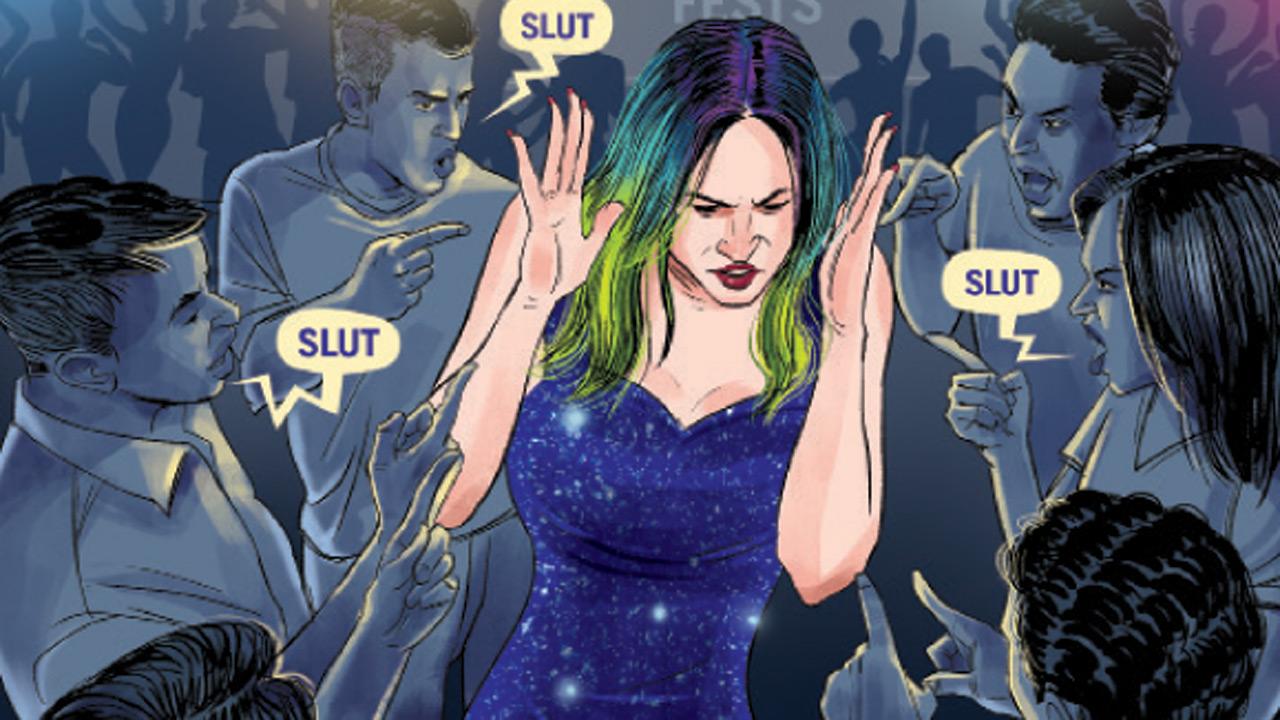Politics
Female Students Speak Out on Harassment in College Festivals

The vibrant college festival season in Mumbai has unveiled a troubling undercurrent of harassment faced by female students involved in organizing these events. As two of Asia’s largest student-run festivals kick off, reports from participants reveal a culture rife with exploitative behaviors, including sexual harassment and aggressive misconduct.
In a city known for its dynamic student culture, festivals are seen as a rite of passage. Participation can elevate a student’s social standing, making them “ones to watch” within their institutions. Yet, this competitive environment has also fostered an atmosphere where power imbalances are exploited. According to students, male organizers often leverage their positions to demand sexual favors in return for opportunities, creating a toxic culture that many women feel compelled to navigate silently.
Lily Patel, a recent graduate from a prestigious college in South Mumbai, shared her experience after participating in numerous festivals. “If you don’t participate, you’re marked as a loser,” she explained, highlighting how deeply ingrained the festival culture is in college life. The hierarchy within festival committees mirrors that of corporate structures, where a handful of key figures hold significant power over their peers.
Chandni Kadu, another student leader, emphasized the challenges women face in male-dominated roles. She noted that women are often deemed unfit for leadership positions in departments like management, which are traditionally considered male domains. “It is assumed only someone ‘strong’ can take up this job,” Kadu stated, despite evidence that female-led teams can achieve remarkable success, as demonstrated during her tenure as head of a festival in 2023.
Sexual harassment is not limited to organizers; attendees also report incidents of groping and inappropriate behavior. Julie Paulose, who attended her first festival in 2022, described an alarming encounter where she was groped in a crowded area. “The crush of bodies made it impossible to see who did it or react,” she recalled, illustrating the lack of safety many feel in these environments.
In 2023, the Delhi High Court addressed a serious incident involving the filming of female students in a washroom during a college festival, highlighting significant security lapses. Although no similar cases have been reported to the police in Mumbai, students believe such incidents often go unreported due to a culture of silence and fear of retribution.
The use of alcohol during festivals compounds the problem, as it creates an environment where inappropriate behavior is often trivialized. Kadu recounted multiple instances of inappropriate touching that were dismissed as drunken antics. The perception of male organizers as “nice” individuals often protects them from accountability, even when complaints are made.
Concerns about the impact of this culture extend beyond individual incidents. Experts like psychologist Rakshada Inam emphasize the long-lasting effects of trauma on victims, including anxiety and mistrust. “When we expect a safe space but it suddenly turns out unsafe, it brings a lot of shock and mistrust,” Inam explained.
Current legal frameworks, such as the Sexual Harassment at Workplace Act (POSH Act), mandate that educational institutions implement measures to protect students. Audrey D’mello, a lawyer with NGO Majlis Law, noted that colleges must establish internal committees to handle sexual harassment complaints effectively. “If your college lacks an Internal Committee, your license to operate can be revoked,” she warned, highlighting the legal responsibilities institutions face.
In response to the growing awareness of these issues, some colleges are beginning to implement measures aimed at improving safety during festivals. Dr. Annapurna Shankarnarayanan, convenor of the Internal Committee at St. Xavier’s College, stated that their institution has various support systems in place, including an Anti-Ragging Cell and grievance redressal mechanisms.
Despite these efforts, the culture of denial and the fear of social repercussions continue to silence many survivors. Students report feeling hesitant to speak out, fearing it may jeopardize their future opportunities or friendships. “The culture of denial has turned many fests into safe havens for predatory behavior,” stated Kadu.
As students continue to navigate the complexities of college festivals, it becomes increasingly clear that without systemic changes and a commitment to accountability, these events will remain breeding grounds for harassment. The voices of those who have faced such experiences must be amplified to foster a safer and more inclusive environment for all participants.
-

 World5 months ago
World5 months agoSBI Announces QIP Floor Price at ₹811.05 Per Share
-

 Lifestyle5 months ago
Lifestyle5 months agoCept Unveils ₹3.1 Crore Urban Mobility Plan for Sustainable Growth
-

 Science4 months ago
Science4 months agoNew Blood Group Discovered in South Indian Woman at Rotary Centre
-

 World5 months ago
World5 months agoTorrential Rains Cause Flash Flooding in New York and New Jersey
-

 Top Stories5 months ago
Top Stories5 months agoKonkani Cultural Organisation to Host Pearl Jubilee in Abu Dhabi
-

 Sports4 months ago
Sports4 months agoBroad Advocates for Bowling Change Ahead of Final Test Against India
-

 Science5 months ago
Science5 months agoNothing Headphone 1 Review: A Bold Contender in Audio Design
-

 Top Stories5 months ago
Top Stories5 months agoAir India Crash Investigation Highlights Boeing Fuel Switch Concerns
-

 Business5 months ago
Business5 months agoIndian Stock Market Rebounds: Sensex and Nifty Rise After Four-Day Decline
-

 Sports4 months ago
Sports4 months agoCristian Totti Retires at 19: Pressure of Fame Takes Toll
-

 Politics5 months ago
Politics5 months agoAbandoned Doberman Finds New Home After Journey to Prague
-

 Top Stories5 months ago
Top Stories5 months agoPatna Bank Manager Abhishek Varun Found Dead in Well









